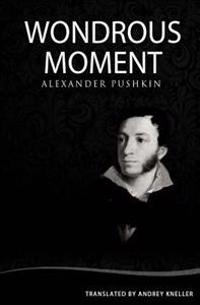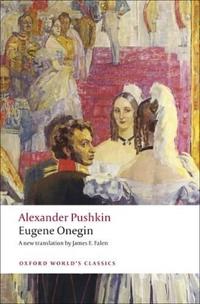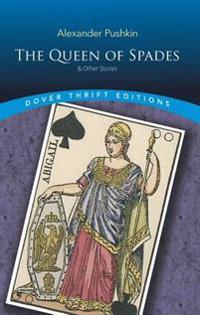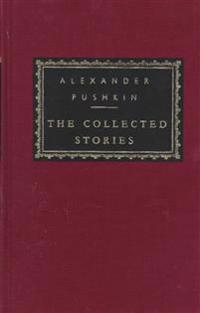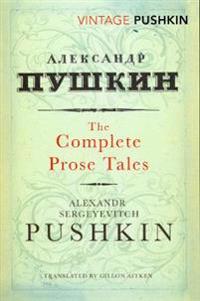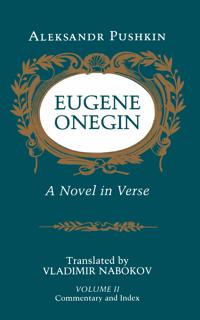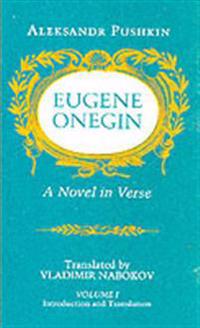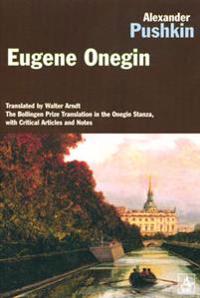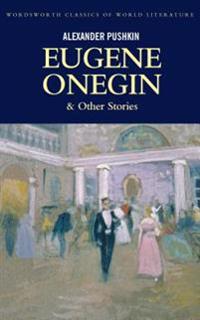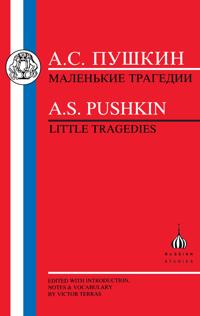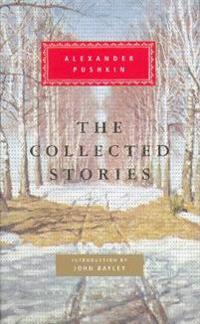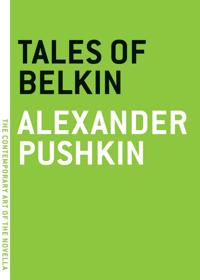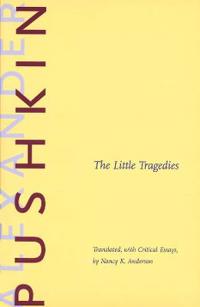Wondrous Moment: Selected Poetry of Alexander Pushkin (Häftad)
avAndrey Kneller, Alexander Pushkin, Aleksandr Sergeevich Pushkin
ISBN: 9781440439728 - UTGIVEN: 2008-10Eugene Onegin (Pocket)
avAleksandr Sergeevich Pushkin, James E. Falen, Aleksandr Sergeevich Pushkin
ISBN: 9780199538645 - UTGIVEN: 200903Eugene Onegin is the master work of the poet whom Russians regard as the fountainhead of their literature. Set in 1820s imperial Russia, Pushkin's novel in verse follows the emotions and destiny of three men - Onegin the bored fop, Lensky the minor elegiast, and a stylized Pushkin himself - and the [...]
The Queen of Spades and Other Stories (Pocket)
avAleksandr Sergeevich Pushkin, T. Keane, Aleksandr Sergeevich Pushkin
ISBN: 9780486280547 - UTGIVEN: 199407This volume contains new translations of four of Pushkin's best works of fiction. The Queen of Spades has long been acknowledged as one of the world's greatest short stories, in which Pushkin explores the nature of obsession. The Tales of Belkin are witty parodies of sentimentalism, while Peter the [...]
The Collected Stories [With Ribbon] (Inbunden)
avAleksandr Sergeevich Pushkin, Alexander Pushkin
ISBN: 9780375405495 - UTGIVEN: 199905Pushkin's prose tales are the foundation stones on which the great novels of Turgenev, Tolstoy, and Dostoevsky were built, but they are also brilliant and fascinating in their own right. In both prose and verse, Pushkin was one of the world's great storytellers: direct and dramatic, clear-sighted, v[...]
Eugene Onegin: A Novel in Verse (Pocket)
avPushkin, Aleksandr Sergeevich, Pushkin, Alexander Sergeyevich
ISBN: 9780465020942 - UTGIVEN: 2000-08-21Fans of Hofstadter's Le Ton beau de Marot will be delighted to see his meticulous theories of translation put into practice in what seems destined to become the definitive English-language version of Eugene Onegin. It is sure to bring new and deserving readers to this neglected literary jewel.[...]
Complete Prose Tales (Storpocket)
avAleksandr Sergeevich Pushkin
ISBN: 9780099529477 - UTGIVEN: 200810This title is translated, annotated and introduced by Gillon Aitken. Beyond his perfect expression of Russian mood, Pushkin's universality of vision has made him a permanent place in the history of world literature. Gillon Aitken's distinguished translation is the only volume that contains all his p[...]
The Queen of Spades and Other Stories (Pocket)
avAleksandr Sergeevich Pushkin
ISBN: 9780199538652 - UTGIVEN: 2009-03-25This volume contains new translations of four of Pushkin's best works of fiction. The Queen of Spades has long been acknowledged as one of the world's greatest short stories, in which Pushkin explores the nature of obsession. The Tales of Belkin are witty parodies of sentimentalism, while Peter the [...]
Eugene Onegin (Häftad)
avAleksandr Sergeevich Pushkin
ISBN: 9780691019048 - UTGIVEN: 199101This is the widely acclaimed translation of Russian literature's most seminal work. Pushkin's "novel in verse" has influenced Russian prose as well as poetry for more than a century. By turns brilliant, entertaining, romantic and serious, it traces the development of a young Petersburg dandy as he d[...]
Eugene Onegin (Häftad)
avAleksandr Sergeevich Pushkin
ISBN: 9780691019055 - UTGIVEN: 199101"In an era of inept and ignorant imitations, whose piped-in background music has hypnotized innocent readers into fearing literality's salutary jolt, some reviewers were upset by the humble fidelity of my version..." Such was Vladimir Nabokov's response to the storm of controversy aroused by the fir[...]
Eugene Onegin (Häftad)
avAleksandr Sergeevich Pushkin
ISBN: 9780875011066 - UTGIVEN: 199312This is the widely acclaimed translation of one of the outstanding and seminal works of Russian literature. Pushkin's "novel in verse" has influenced Russian prose as well as poetry since its completion nearly 175 years ago. By turns brilliant, entertaining, romantic, and serious, it traces the deve[...]
Eugene Onegin and Four Tales from Russia's Southern Frontier (Storpocket)
avAleksandr Sergeevich Pushkin
ISBN: 9781840221367 - UTGIVEN: 200107Alexander Pushkin (1799-1837) is, for Russians, their greatest writer; Eugene Onegin is his greatest work. Yet it remains little known outside Russia. Attempts to render Pushkin's Russian stanzas into verse have tried in vain to imitate the most inimitable features of the original, while masking man[...]
Little Tragedies (Häftad)
avAleksandr Sergeevich Pushkin
ISBN: 9781853992698 - UTGIVEN: 1998-01This edition of Pushkin's tragedy "Boris Godunov" is part of the Bristol Classical Press Russian Texts series. The series is designed to meet the needs of the growinghigh school and undergraduate market for texts in the Russian language. Each text comes with English notes and vocabulary, and with an[...]
Collected Stories (Inbunden)
avAleksandr Sergeevich Pushkin
ISBN: 9781857152517 - UTGIVEN: 199904This expanded edition of Pushkin''s prose fiction contains all his mature work with short pieces and The History of Pugachev. Pushkin''s prose tales are the foundation stones of Russian literature and his story-telling ability is clearly presented'[...]
The Little Tragedies (Pocket)
avAleksandr Sergeevich (TRN) Pushkin, Nancy K. (TRN) Anderson, Aleksandr Sergeevich (TRN) Pushkin
ISBN: 9780300080278 - UTGIVEN: 2000-04In a major burst of creativity, Russian poet Alexander Pushkin during just three months in 1830 completed Eugene Onegin, composed more than thirty lyric poems, wrote several short stories and folk tales, and penned the four short dramas in verse that comprise the "little tragedies." The "little trag[...]
Tales of Belkin and Other Prose Writings (Pocket)
avPushkin, Aleksandr Sergeevich
ISBN: 9780140446753 - UTGIVEN: 1998-01-29Alexander Pushkin was Russia's first genius in poetry and prose, who, according to Dostoyevsky, "showed us a whole gallery of genuinely beautiful Russian characters which he discovered in the Russian people". After completing his epic poem Eugene Onegin, Pushkin retired to his family's house in the [...]

